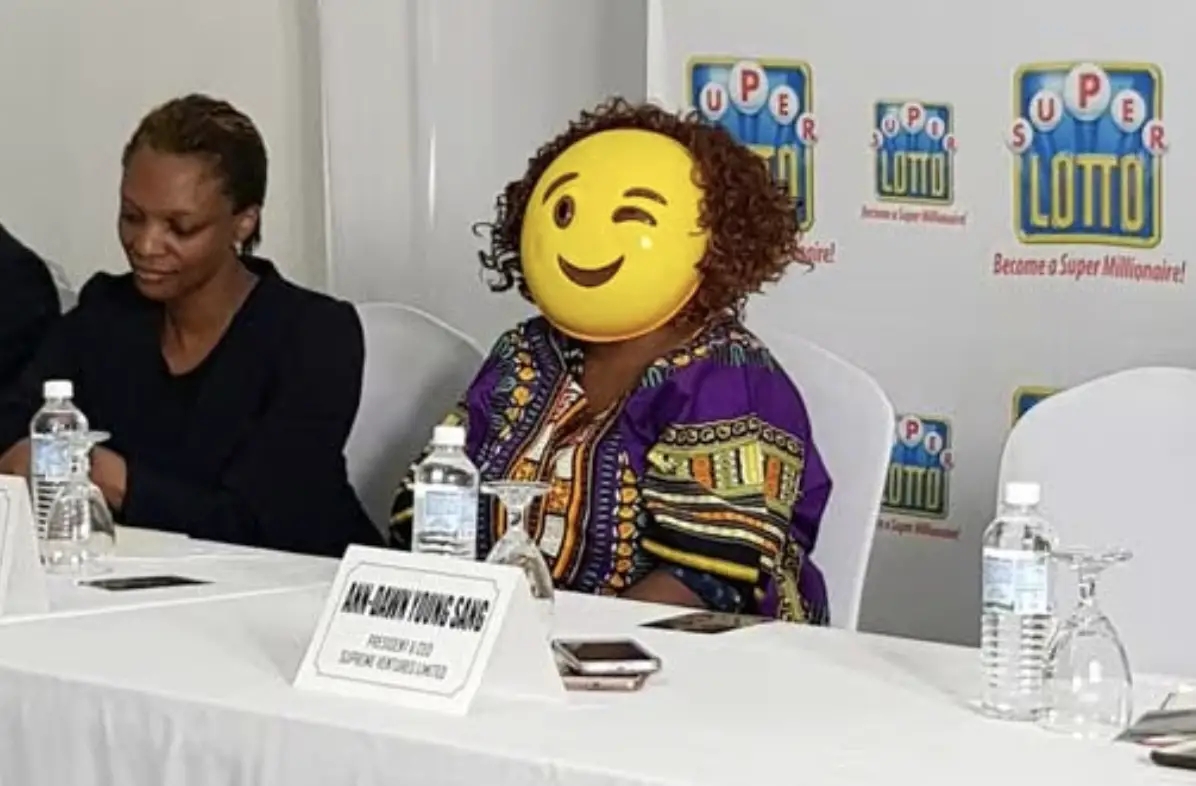A woman in Jamaica identified only as “N. Gray” claimed her enormous lottery prize—180 million Jamaican dollars, roughly $1.4 million U.S.—in a public ceremony that made headlines not just for the amount, but for her disguise. Smiling and winking through a giant emoji face mask, she accepted the check in a deliberate effort to protect her identity amid fears of unwanted attention.
The masked winner emerged in early June 2018 at an official presentation arranged by Supreme Ventures Ltd., the operator of the Super Lotto game. She arrived at the venue wearing a large yellow mask with a winking emoji face. Behind the disguise, the woman signed paperwork and posed for photographs as representatives unveiled her prize check. Snack-sized social media posts by the lottery company, including images of her wearing the mask, quickly went viral.
The mask wasn’t merely a dramatic flourish—it served a practical purpose. The woman cited deep anxiety about revealing her wealth to an audience that could include criminals or opportunists. In an interview with The Gleaner, she said that at the time of winning, she was “drowning in debt,” and that the windfall gave her both relief and responsibility. She outlined plans to use the money to clear debt, invest, travel, and fund a community center focused on information technology for local youth. The mask, she said, was a shield for herself and her family.
Suppressing personal identity has become a growing trend among lottery winners, especially in regions where security concerns loom large. In Jamaica and elsewhere, anonymity for winners is not guaranteed by law, and many feel vulnerable to extortion, fraud, or exposure. Some even leave the public eye out of fear or discomfort. In this case, while she could not remain truly anonymous due to lottery regulations, the mask symbolized her desire to guard her private life while following formal procedures.
